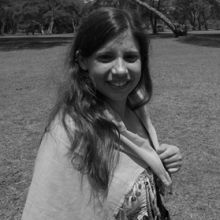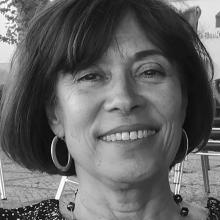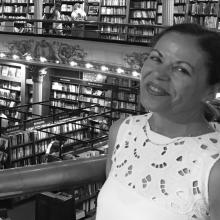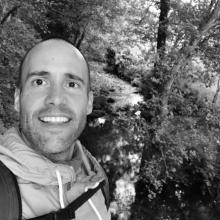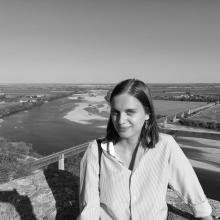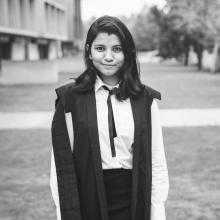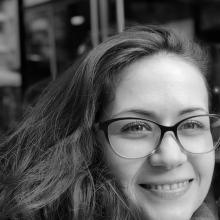Laboratório de Psicolinguística
Research in the Laboratory of Psycholinguistics focuses on language processing at the word and sentence levels.
We employ different experimental techniques (e.g., eyetracking, self-paced reading, lexical priming) to investigate aspects of lexical, morphological, and syntactic processing, in typical and atypical populations (e.g., L1 and L2 speakers, language and reading disorders).
Our research is primarily organized around four main lines:
- L1 and L2 processing, focusing on (a) cross-linguistic differences, particularly on specific properties of European Portuguese and its contrast with other languages and varieties, and (b) the determinants of intra- and inter-individual variability in language processing;
- Language processing from a lifespan perspective, with a focus on the multifaceted outcomes of aging across different linguistic domains and cognitive functions;
- Statistical methods for the language sciences: their development, promotion, and application to questions of psycholinguistic interest;
- Clinical linguistics, including the development of instruments for the assessment and training of linguistic competencies.
Selected publications
- Ciaccio, L., & Veríssimo, J.* (2022). Investigating variability in morphological processing with Bayesian distributional models. Psychonomic Bulletin & Review, 29, 2264–2274. [*equal contribution] https://doi.org/mg7p
- Fernandes, E., Luegi, P., Correa Soares, E., de la Fuente, I., & Hemforth, B. (2018) Adaptation in pronoun resolution: Evidence from Brazilian and European Portuguese. Journal of Experimental Psychology: Learning, Memory, and Cognition, 44, 1986-2008. https://doi.org/gk4ntd
- Freitas, M. J., Lousada, M., & Alves, D. C. (Eds.) (2022). Linguística clínica: Modelos, avaliação e intervenção [Clinical linguistics: Models, assessment, and intervention]. Language Science Press. https://langsci-press.org/catalog/book/358
- Pereira, N., Costa, A., & Guerreiro, M. (2022). Effects of word length and word frequency among dyslexic, ADHD-I and typical readers. Journal of Eye Movement Research, 15. https://doi.org/mx7x
- Veríssimo, J. (2021). Analysis of rating scales: A pervasive problem in bilingualism research and a solution with Bayesian ordinal models. Bilingualism: Language and Cognition, 24, 842–848. https://doi.org/gtgn
- Veríssimo, J., Verhaeghen, P., Goldman, N., Weinstein, M., & Ullman, M. T. (2022). Evidence that ageing yields improvements as well as declines across attention and executive functions. Nature Human Behaviour, 6, 97–110. https://doi.org/gmh3bj
- Villalva, A. (2022). Complex verbs: The interplay of conversion and other word-formation processes. In A. E. Ruz, C. Fernández-Alcaina, & C. Lara-Clares (Eds.), Paradigms in word-formation (249-282). John Benjamins. https://doi.org/mx7w
History
Our research in psycholinguistics began in the early 1980s with the studies of Prof. Isabel Hub Faria on paranoid schizophrenic discourse. A few years later, the ‘Group for the Study of Language and Cognition’ was founded, which brought together researchers in psychology, linguistics, cybernetics, and mathematics. Our first studies on language acquisition took place around this time and contributed to the development of child language corpora.
In the late 1980s, the ‘Laboratory of Psycholinguistics’ was formally recognized as a research group within the Center of Linguistics of the University of Lisbon (CLUL) and we gained access to our first laboratorial facilities. More recently, we have acquired a range of well-equipped facilities for conducting eye-tracking and behavioral tasks, including an experimental booth for data collection and Eyelink eye-trackers (both static and portable).
Throughout its history, the members of the Laboratory of Psycholinguistics have conducted research on aeras such as language processing, reading, speech perception and production, language acquisition and development, second language learning and processing, language disorders, and Portuguese sign language.
Much of this research has involved close collaborations with national and international institutions, including other schools of the University of Lisbon and universities in Brazil (UFP, UFRJ, UFSC), Germany (Goethe Frankfurt, Potsdam) and the USA (Georgetown).
Isabel Hub Faria founded the Laboratory of Psycholinguistics and directed it until 2009. Since then, the research group has been headed by Armanda Costa, Isabel Falé, and currently, by João Veríssimo and Paula Luegi.
Membros
Investigadores integrados com doutoramento
Investigadores integrados sem doutoramento
Colaboradores
Concluídos
| Projeto | Data | Fin. |
|---|---|---|
| Compreensão na Leitura. Processamento de Palavras, Frases e Textos | - | FCT
|
| Recursos | Tipo |
|---|---|
| Economics e-Translations into and from European Languages | Base de dados |
| O guia de pronúncias em português - Port_ProDi | Base de dados |




